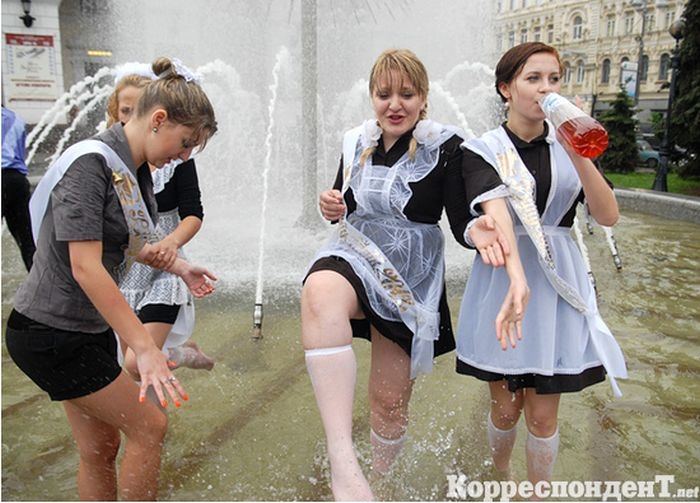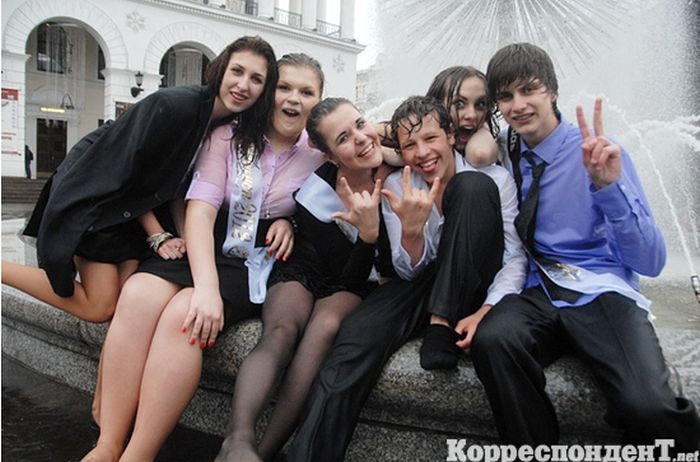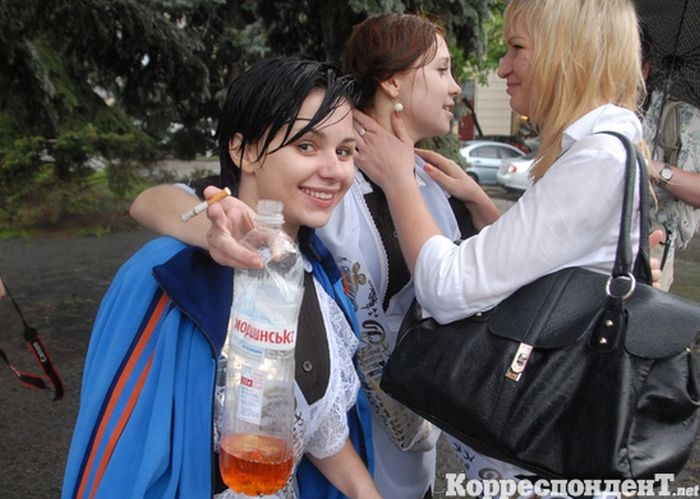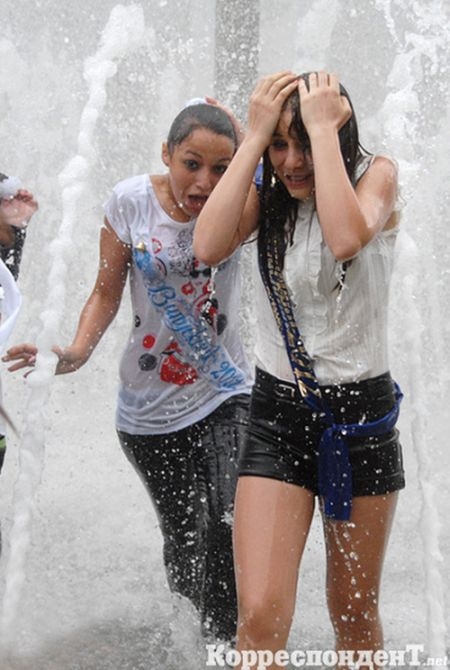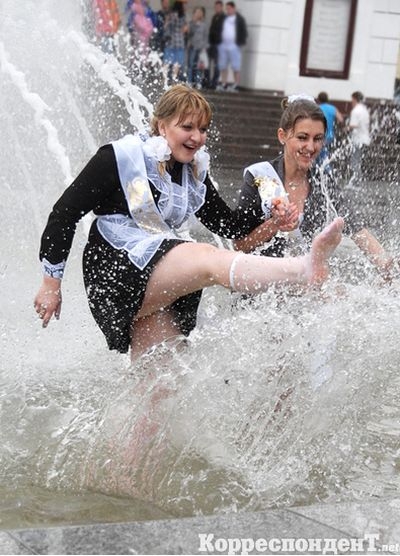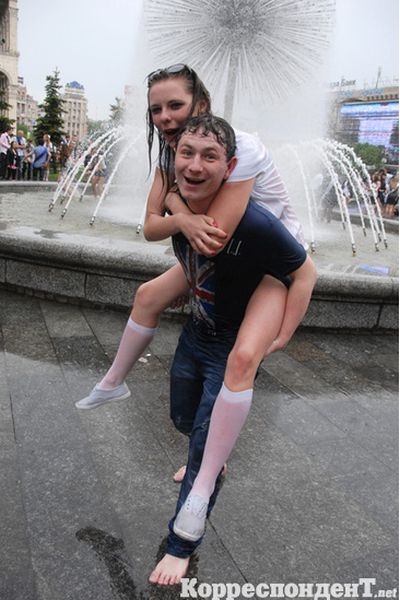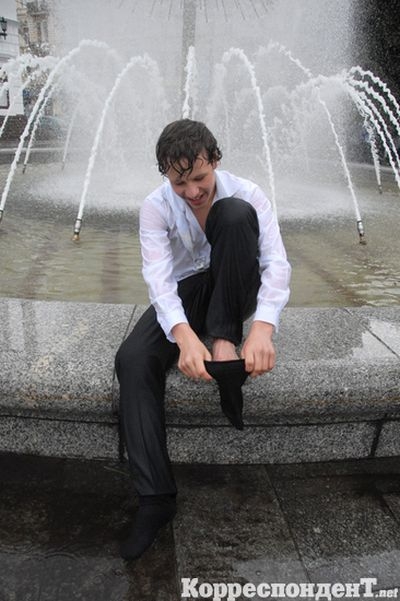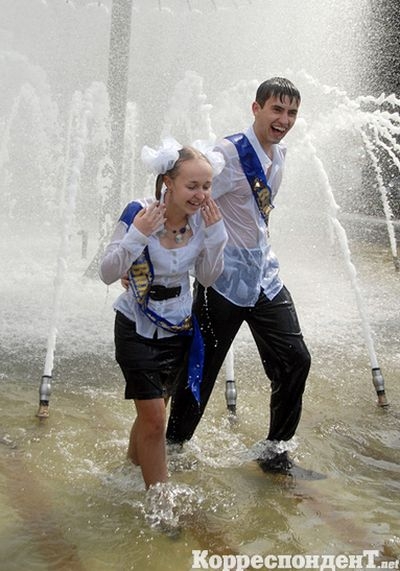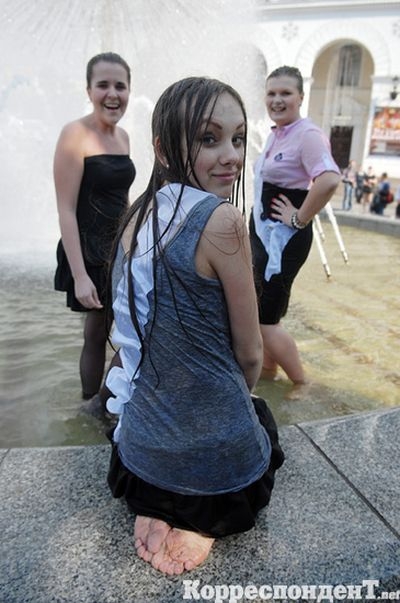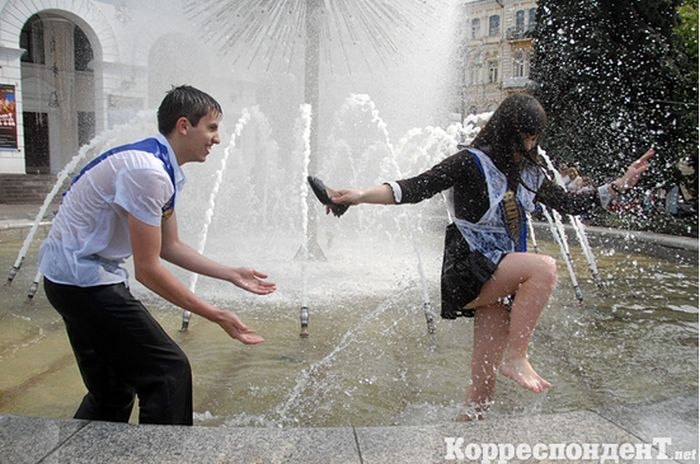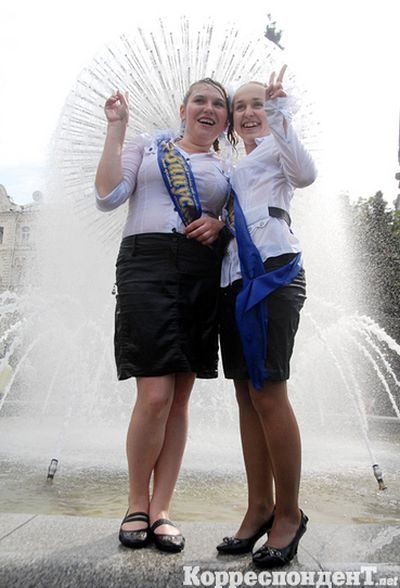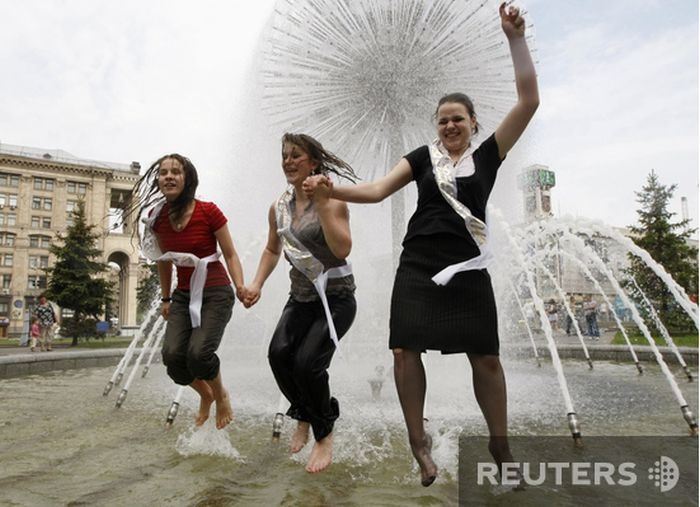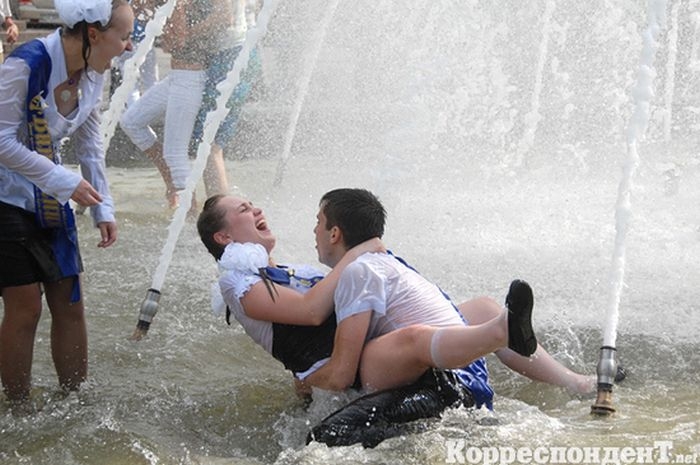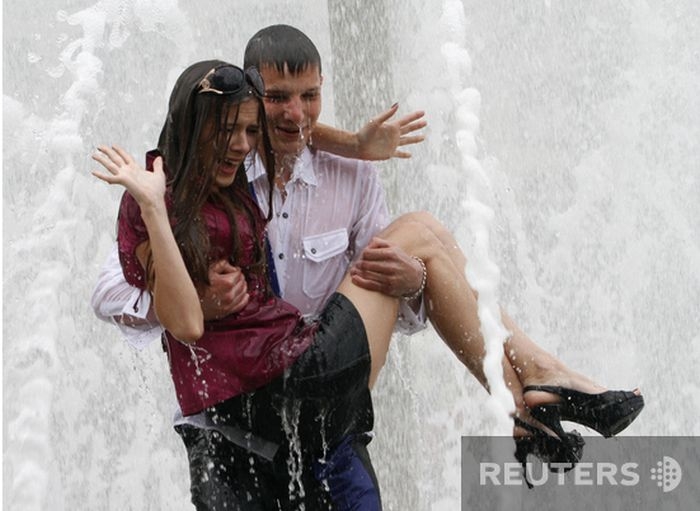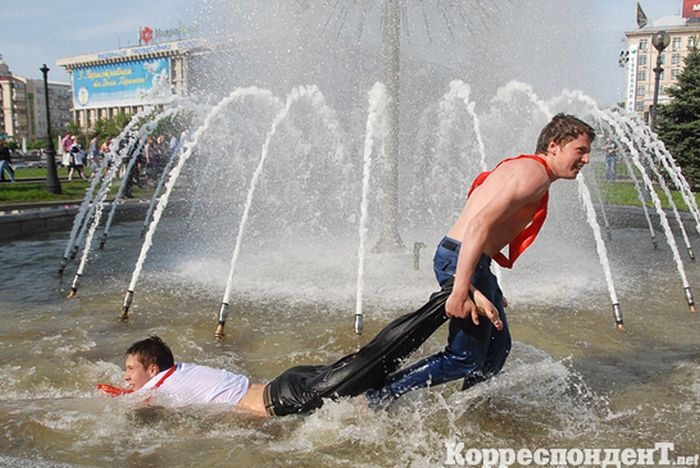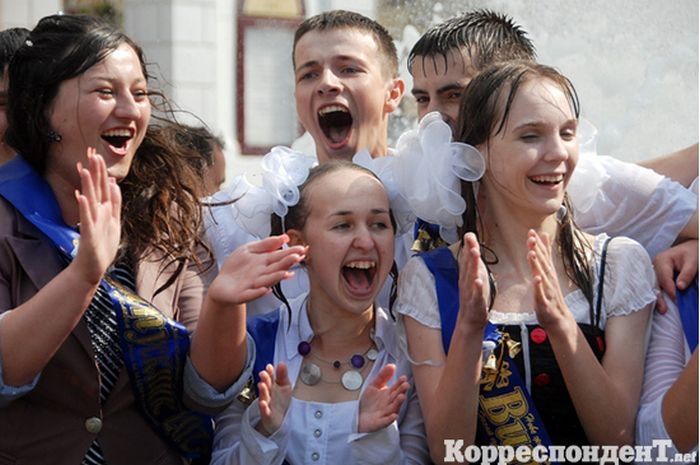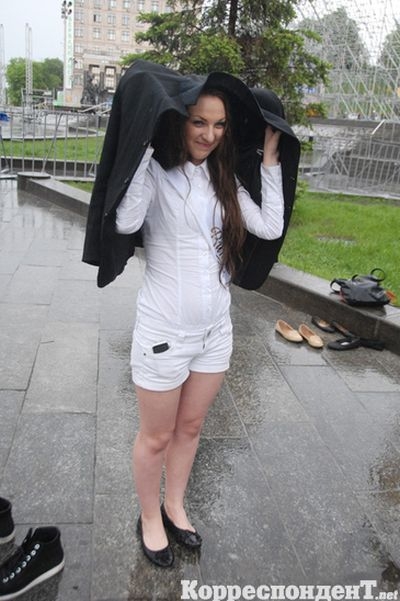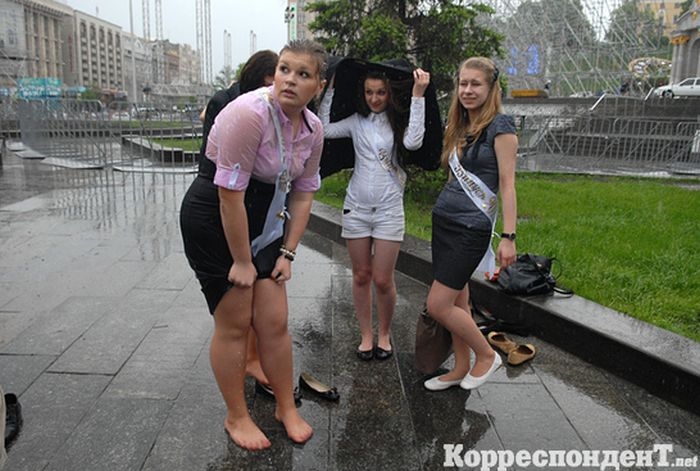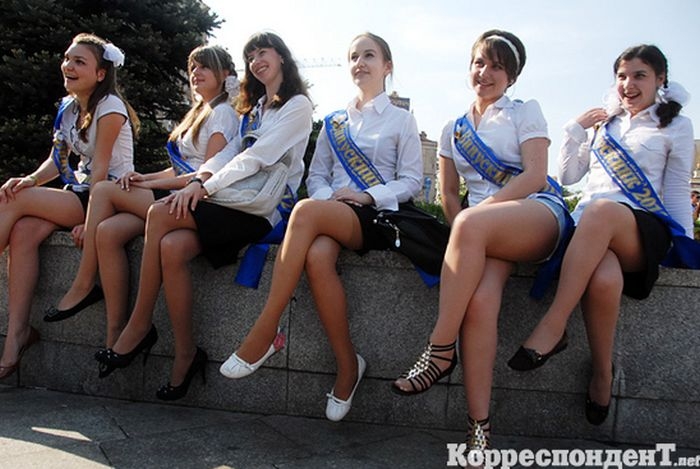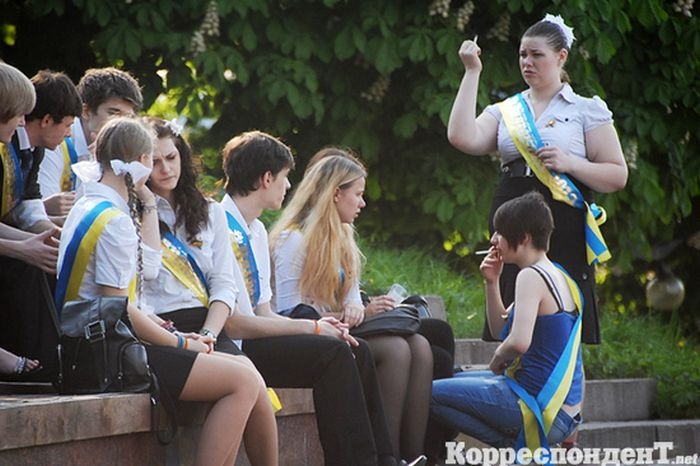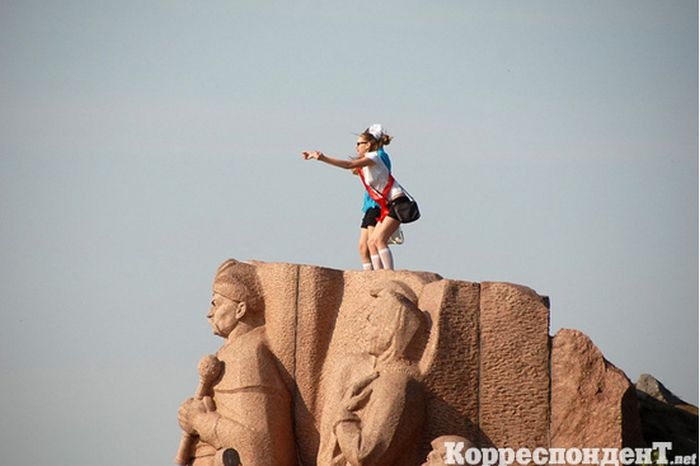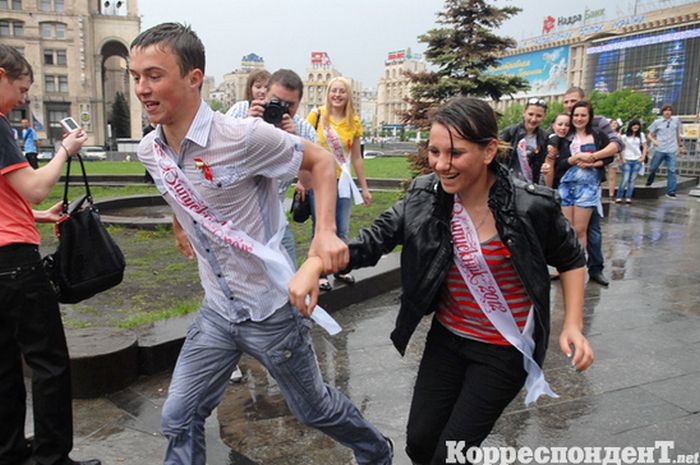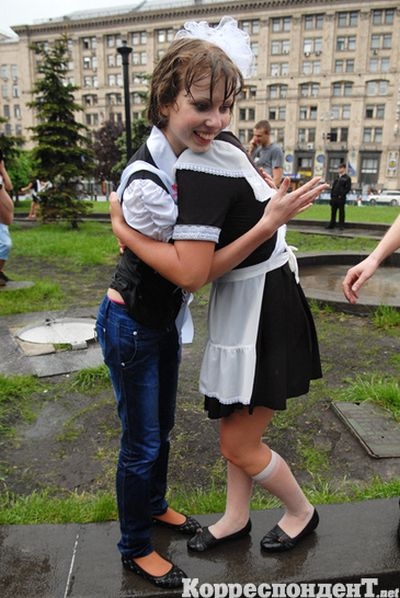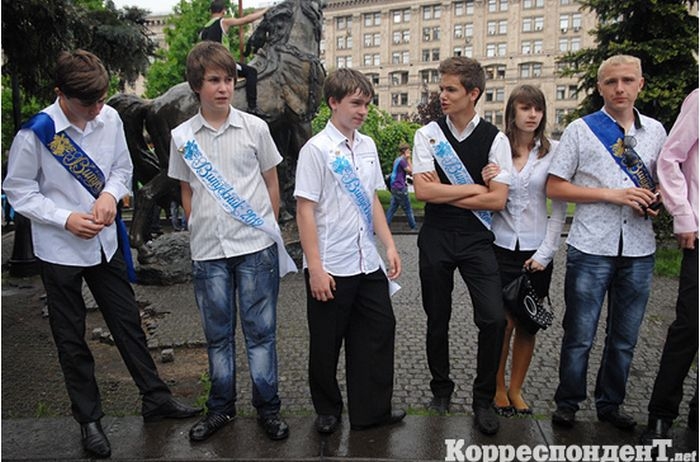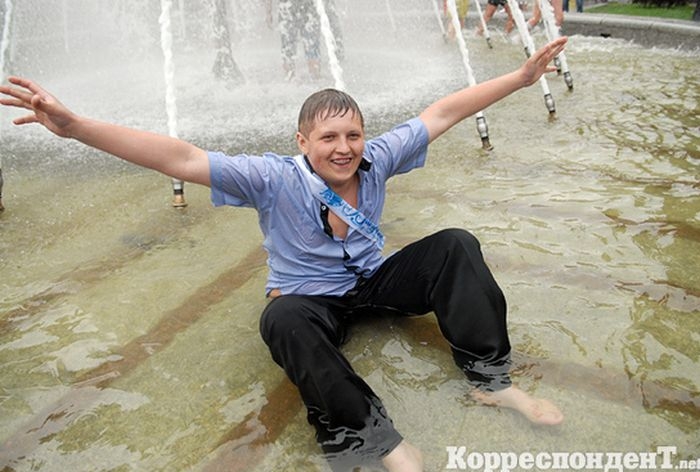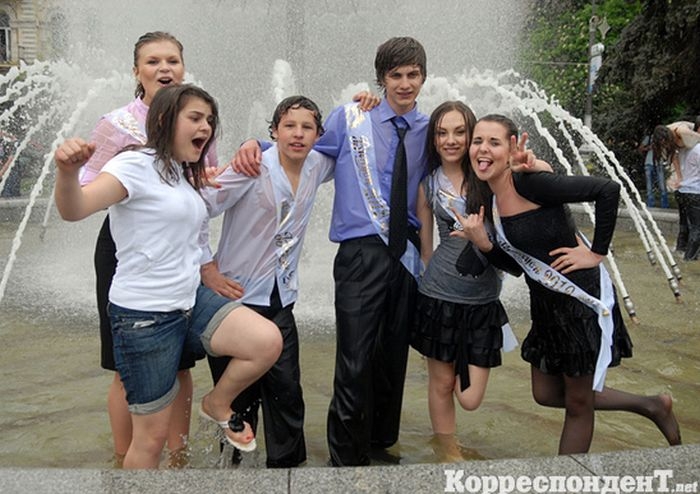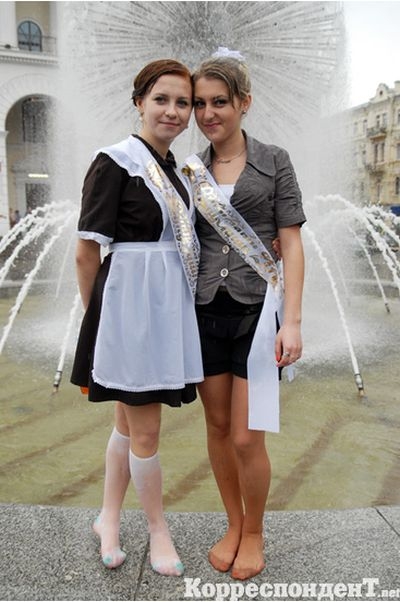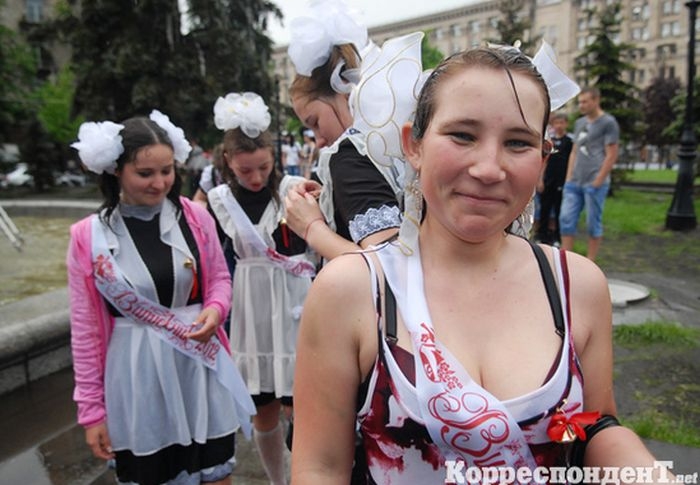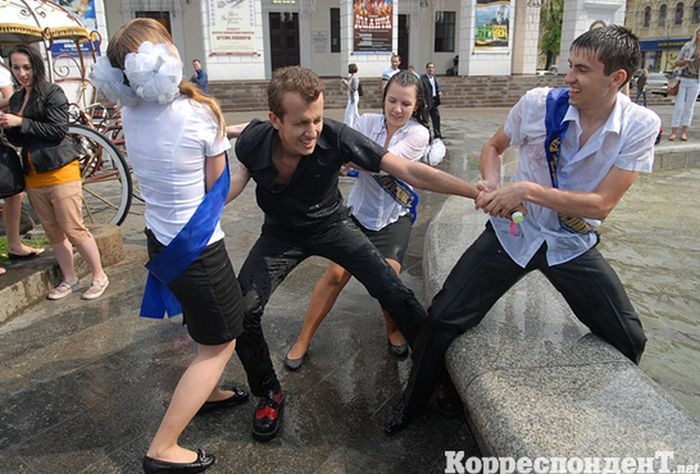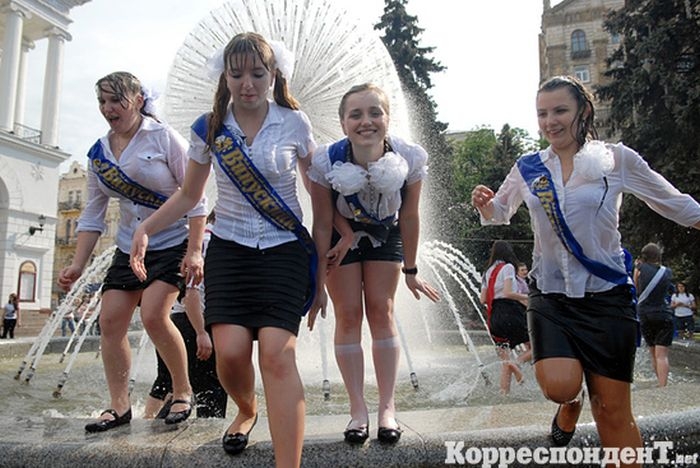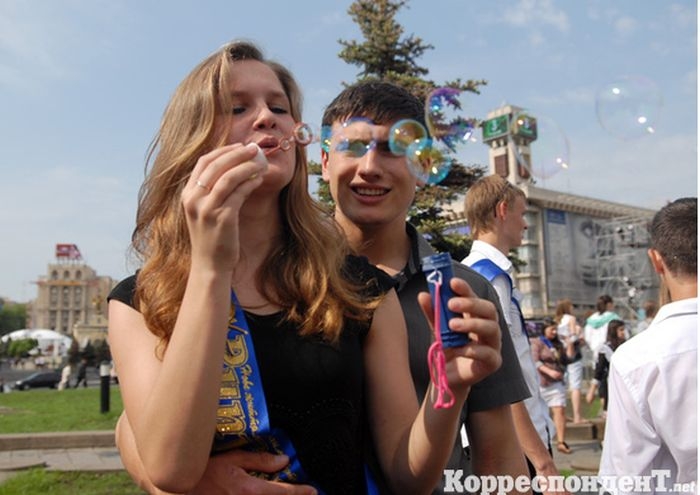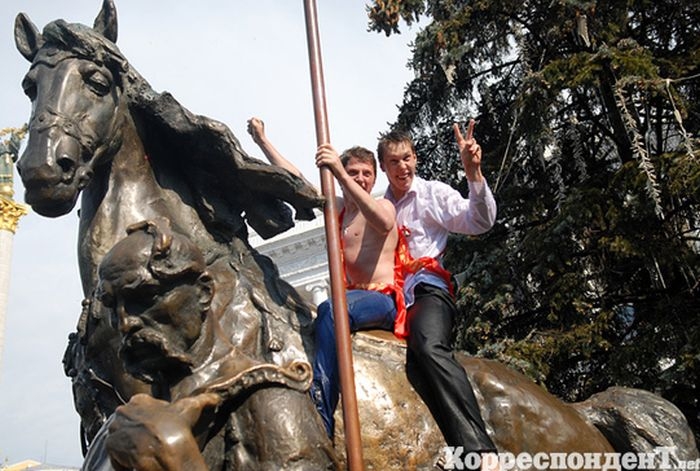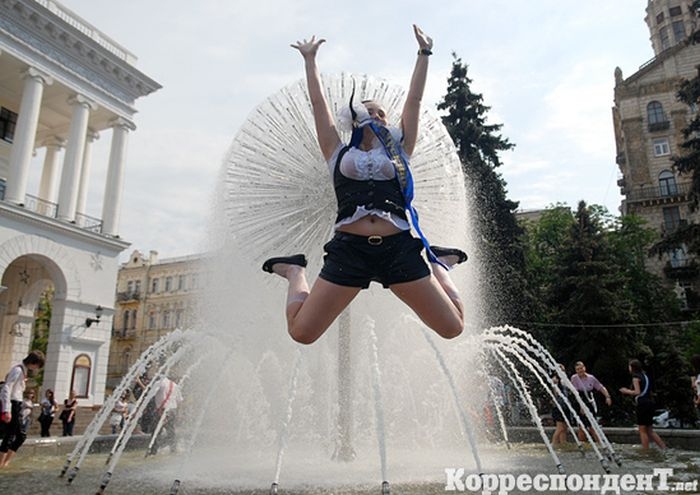This is a short ‘survival guide’ for people who are unfamiliar with Ukraine.
I have been here in Ukraine for over two years, but I still remember what it is like to arrive in an unfamiliar place with a crazy alphabet and an almost non-existent tourist industry. So, while the guide is not 100% serious – I hope you find it useful and/or enjoyable.
Also, if you live here and you have anything to add, or if you disagree with me, please add your comments below. I’m sure there will be lots of things I miss and I hope the comments section will grow to be as useful as the guide itself.
If you have any questions, then please also use the comments section at the bottom. I will add more to the guide as/when I can.
The Ukraine Survival Guide
The water.
Drinking the water in Ukraine won’t kill you, but it might give you unwanted stomach problems and if you drink too much you might spend more time on the toilet than anywhere else.
Most locals happily drink the water once its been boiled (for tea etc) and it doesn’t do them any harm. It is also perfectly fine to wash your teeth and rinse your mouth with the tap water, so don’t panic if you accidentally drink some or swallow some while cleaning your teeth – you’re not going to die.
To be 100% safe buy and drink bottled water which you can buy from almost every Kiosk/shop. Also, if you are unlucky and you do develop a bad stomach you will find pharmacies all over the city. Good luck explaining your symptoms to the cashier 😉
Toilets and toilet paper.
If you ‘need to go’ while you are in a hotel, bar or restaurant then the toilet will probably look quite familiar and although it might not have a toilet seat, I think you know how to use it.
However, if you are not in a ‘modern’ building (this includes most theatres and public buildings) then you will probably have to use a squat toilet.
Unfortunately, I still haven’t worked out a satisfactory method of using them. So, if you really have to go – good luck.
TP Tip. Wherever you are, you’ll probably have to ‘wipe’ with some cheap, abrasive, and depressingly grey toilet paper. If you are exceptionally fussy about such things I suggest you keep a small supply of tissues in your pocket. If you are totally desperate and there is no paper, then there is always the 1 UAH banknotes. Ten of them only costs you a Euro!
The Police.
The police in Ukraine are unlikely to be anything like the police you have at home. Ukrainians do not trust their police, they do not call the police if they have a problem unless it is absolutely essential, and if they do, they don’t expect much to happen. Here in Ukraine the police are seen as a public nuisance which, where possible, should be avoided.
In my experience, if you speak English (or any other foreign language) anywhere near the police they are likely to stop you and ask questions. The first question will almost always be: Where is your passport?
If you don’t have it, things get complicated.
> If you are with a Ukrainian or you are good at talking your way out of a tricky situation, they might let you go.
> You might get an on-the-spot fine.
> Or, you might get violently thrown into a police van and driven to a suburban police station to be intimidated.
Of course, if you are in Ukraine and you are a victim of a crime you definitely should contact the police, but if you have time I recommend you speak to your Embassy first. They will be able to offer advice and if you need one they will recommend a translator and lawyer. If anything gets stolen while in Ukraine, you will probably need a police report for your insurance company, so this will also require a trip to the local ‘Militia’.
As the US embassy explains “Ukraine lacks reliable services for foreign victims of crime. Transferring funds from the United States, replacing stolen traveler’s checks or airline tickets, or canceling credit cards can be difficult and time consuming. There are few safe low-cost lodgings, such as youth hostels. Public facilities in Ukraine are generally not equipped to accommodate persons with physical disabilities.”
The public.
Ukrainians are often very direct and in public they are very pushy. This ‘me first’ attitude means they rarely queue for anything and there will almost always be a rush to be ‘first’ for everything. This is true whether you’re in a supermarket or getting on/off the metro.
This will probably cause you more problems if you’re English than if you’re German but try to get used to it or it will drive you crazy. Take a deep breath, understand that you need to be assertive and stand your ground.
Finally, while Ukrainians are often pushy, they are very rarely violent. So, don’t get angry if things don’t go your way. Just accept that you’re in Ukraine and these are the rules of the game. Also, there are some nice exceptions to the ‘me first’ rule. If you are an old lady, a woman with children, or a couple (boy + girl) people may offer you their seat. If you are a girl, the guys often open doors for you and carry your bags etc.
Bars and clubs.
Ukraine, well certainly Kiev, doesn’t have a bar culture which is similar to elsewhere in Europe. Of course Ukrainians like to drink (maybe too much) but they either do it on the street or they sit at a table with friends.
Also, most restaurants, bars and pubs will only let you stay if there is space at a table where you can sit. Standing for a beer at the bar is not common and often not allowed.
This isn’t a big deal, but its worth knowing. If you’re English you will also need to remember to take a table and wait to be served. You do NOT need to go to the bar. This is true even in the pubs and ‘Irish Pubs’ that look familiar to those at home.
You need to sit down, wait to be served and then wait for the bill at the end of the night. If you are used to paying upfront, it is easy to leave forgetting to pay the bill. However, if this happens then always go back and apologise and pay. If you don’t there is every chance that it will be deducted from the poor waitresses salary. Yes, Ukrainian managers are that heartless.
If you want to drink outside with the locals, nobody is going to stop you, but just remember it is actually illegal to drink on the streets. If the police see you they may take your beer and/or make you pay a fine.
Cars and pavements.
Car drivers in Ukraine don’t have many places to park, so they decided to solve the problem by parking on the pavement (sidewalk). This means you share the pavements with a ridiculous number of SUVs and a ridiculous number of bad drivers. Ukraine is a country where you can easily purchase your driving licence and take to the roads without ever taking a driving lesson. Be careful and if you have kids – keep a lookout for them .
Smoking.
In early 2012 the government passed a new law to outlaw cigarette advertising and ban smoking in public. One day this might reduce the cigarette-smoke-smog that will live with you while you’re in Ukraine. For now, however, you will have to live with the smell of cigarettes.
With one of the highest rates of smoking in the world, it sometimes feels like smoking is the ‘default’ here in Ukraine, and while most bars and restaurants offer a non-smoking section, this often means a table without an ashtray next to the 10 tables with an ashtray.
Now, this is good news if you are a smoker and you will probably love Ukraine because you can smoke almost anywhere. This includes the trains. Just go to the end of the carriage (where the two carriages join) and you can smoke the hours away.
English.
English isn’t spoken by everyone in Ukraine (and knowing a few words of Russian/Ukrainian will help you enormously) but you can easily survive here on English. Just look for a friendly person under the age of 30 and don’t be afraid to ask them for help. Ukrainian’s can appear quite intimidating (especially if they are dressed like 1980s gangsters or 1990s supermodels), but they are actually pretty friendly and almost always helpful to foreign visitors. This isn’t always true in shops and super-markets but if you are in trouble, its common for someone who does speak English to rescue you. Many Ukrainians studied English at school and they like to practice.
Also, in the run-up to the EURO 2012 football championships a lot has been done to signpost things in English or at least in the Latin alphabet. Of course, its not perfect and the English is often incorrect, but they are at least trying. Just ask yourself how many signs in the UK are translated for Russian speakers?
Elevators.
Lifts, or ‘elevators’ in Eastern Europe are intimidating things. They are small, they don’t look safe and they are usually in a state of stinking decay. However, don’t be scared by Ukraine’s collection of terror-boxes – I haven’t heard of anyone who’s every been hurt in, or by a lift.
In Romania, I once squeezed into a lift, with my rucksack and another man, that was only big enough for 1.5 Romanians or 0.25% of an American. The thing was made entirely from wood, it was covered in graffiti and it didn’t have a door or a back wall, but it worked. Basically, if you’re too lazy to walk, don’t expect communist-era machinery to pamper you in luxury while you’re hoisted up or lowered down to the floor.
Where they exist in Ukraine, the lifts don’t always work either, but if they door opens and you can identify the correct number from the cigarette-burnt plastic numbers – you’ll probably be OK.
Just remember that some lifts only deliver to every second floor and, as a compromise, some lifts deliver you mid way between two floors.
What happens if you get stuck?
If you’re extremely unlucky and it stops with you stuck inside, don’t panic. First try prising the door open. This sometimes works and hopefully you’ll be able to squeeze-out. If that doesn’t work, look for one of these:
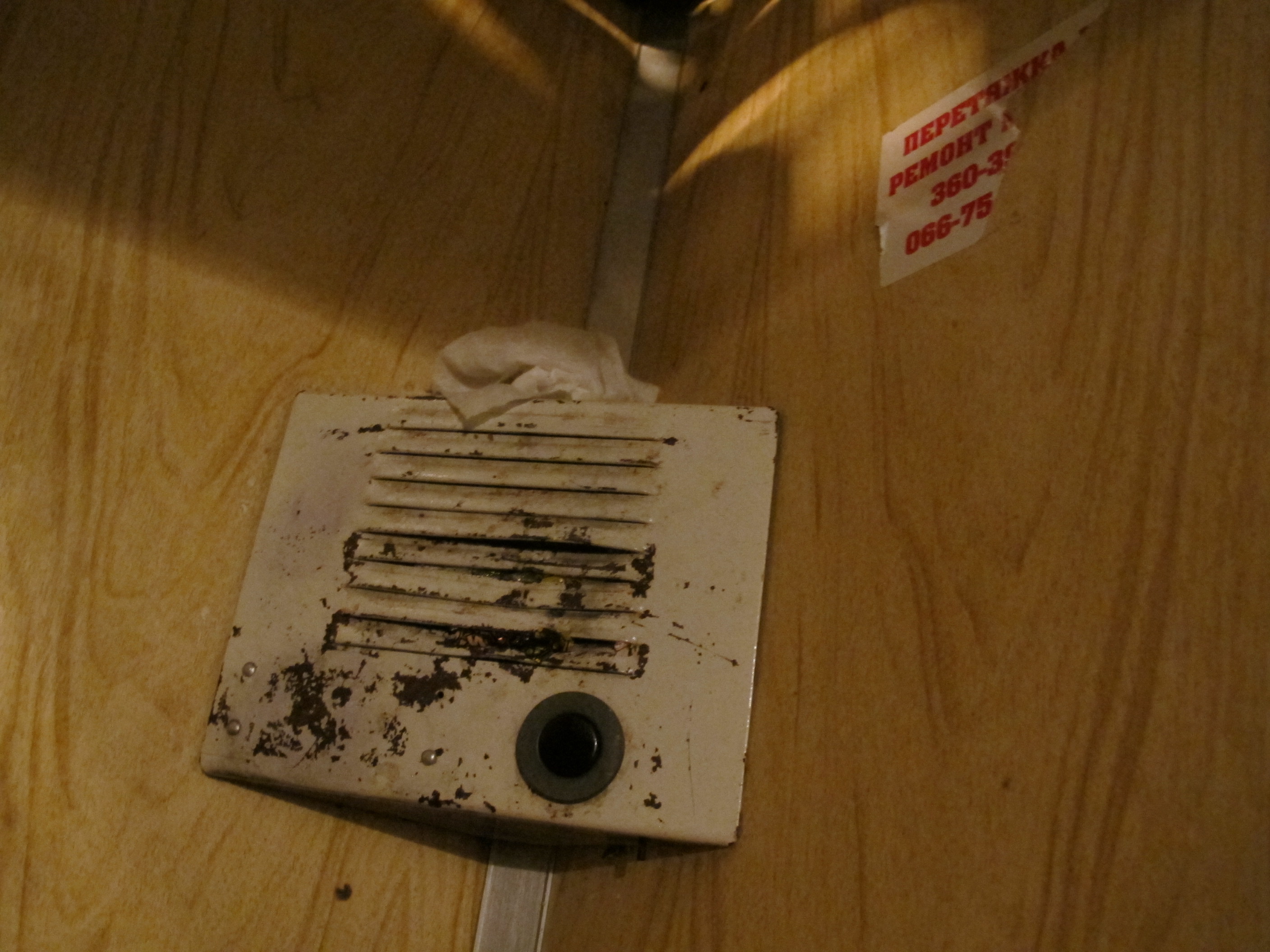
- The intercom – your lift lifeline
This is a lift intercom and whilst it might look like something from a WWII museum – most of them actually work. Press the red button and see what happens. You’ll probably get an angry sounding woman shouting ‘da’ (yes) or ‘sto?’ (what?) and if your Russian/Ukrainian is good enough you can explain. You might even find that they speak English, but don’t count on it. They are employed to intimidate and begrudgingly help – not to communicate.
If you don’t know the address and you can’t find a way to communicate with the intercom woman – just kick the door and make some noise. Eventually someone will hear.
Oh, and make sure you ALWAYS carry the mobile phone number of a Ukrainian who can speak English. This simple trick could save your life.
Transport.
Travel in Ukraine is ridiculously cheap by ‘Western’ standards and its efficient. But, its also quite hectic, usually crowded and often quite scary. However, if you like adventure you are in the right country.
With the exception of taxis, travel is always charged at a ‘flat rate’, so you pay the some price regardless of the distance or the number of stops. This makes life much simpler and often much cheaper.
The Metro. A detailed guide to using the metro/underground/subway is available here
Taxis. One of the most endearing things about Ukraine and other ex-Soviet countries is the fact that every car is a potential taxi. This is free-market economics at its best.
If you hold you arm out indicating a lift, someone will almost always stop and offer you one. The only problem is, you need to tell them where and decide on a price. This is tricky if you don’t know the city or the language. Also, for safety reasons you shouldn’t get in a car with two or three people if you are alone.
A better option is to take a taxi and Ukraine’s taxi business is extremely competitive. Because there are so many taxis (official and unofficial) the prices are low and you can get anywhere in the city centre for less than 50UAH.
Phoning a taxi is the best (and cheapest) option and the operator will usually find someone in the office who can speak English. You need to provide a mobile phone number because they will take your request and the sms you when they find a car. The SMS will have the car make/model and registration number (licence plate) and the SMS will tell you what time it will arrive and how much you should pay. This is a really useful service and very useful when you’re standing near 25 Daewoo Lanos’ taxis and trying to work out which is yours.
If you stop a taxi or take one from the street, decide on your maximum price first (remember anywhere in the city centre should be <50UAH …and then prepare for an argument. If they can see you are foreign (and they will) they will always start with a ridiculously high rate. Just tell them your price and stick to it. If they say no, try walking away towards another taxi, this often works and if it doesn’t, just try your luck with the next taxi – there are hundreds and its better to try three or four than to pay way too much money to the first.
Safety. Your health and safety are not high on your drivers list of priorities and even if it was, many of them distrust safety features such as seatbelts etc. If there is a seatbelt, drivers will often take offence if you try to wear it, but ignore them and strap-up. The road system, the driving culture and the state of Ukraine’s medical facilities all suggest you should.
Oh, and don’t worry too much if the windscreen is broken, the brake warning light is on and the tires are balder than Duncan Goodhew. These are standard features.
Finally, if you are taking luggage, you will be charged an extra price per bag. I’ve never understood the logic to this, but this isn’t a logical place.
If you don’t want to take a taxi, you have several other reliable, but equally chaotic options.
Minibuses. Known locally as Marshrutkas, these little yellow boxes are everywhere and they go everywhere. They are difficult to master if you don’t know the city, but if you’re feeling brave, ask someone which Marshrutka number you need and give them a try.
The main things you need you remember are to pay the driver (2.5UAH in Kiev) and to shout when you want to get off. Paying can be done from the back of the bus by passing your money to the person in front of you. They will pass it forward until it reaches the driver. If you need change, wait and it will be passed back to you.
This unique system is actually quite enjoyable, but it does create problems if you don’t speak the language because you need to say how many tickets you want. Also, people will often hand money to you and tell you how many they want. If you don’t understand, it gets quite messy.
How to survive. If you need to take the minibus, the best thing to do is get on the front, pay the driver the exact amount for one person (2.5 UAH) and then walk to the back of the bus. This is the best place to be because nobody will pass you their money. If you’re at the front, you become a ticket conductor and all hell will break loose.
To get off the bus, either wait until someone else gets off (my preferred method) of shout STOP!. The locals will shout something like ‘at the stop, please’ but the driver will understand you if you stand up and shout stop.
Its customary to let old people and adults with children sit down, and if you forget they will often remind you. Also, if you’re standing up, hold tight because the driver will most likely be driving, changing money for tickets, drinking a coffee, smoking and talking on his mobile phone all at the same time.
Trolleybuses and trams. The ‘normal’ looking buses on the electric rails are called trolleybuses, and along with the trams, they are probably the safest way to travel. They’re also the cheapest at just 1.5UAH, that is 15 Euro cents.
Whe you get on, look for the ticket conductor (yes they still have them) and wait for him/her to come and give you a ticket. When you buy a ticket, they will often ask if you want them to validate, or stamp it. Say yes. If they don’t validate your ticket you need to do it yourself by stamping it in the small clamp on the side of the bus/tram. You will see other people stamping their tickets so just copy them. If you don’t do this your ticket is not valid.
If you get on and there is no conductor, you can buy a ticket from the driver.
Very occasionally, ticket inspectors will ask to see your ticket. This has only happened to me once and they pounced as soon as I walked onto the bus, holding the money to buy a ticket. Obviously, having just walked onto the bus I had no time to get to the conductor but they weren’t interested – they just wanted to scam me and the two of them pushed me to the front of the bus and demanded payment. Practising his best English, one of them mumbled ‘London is the capital of Great Britain’ and then demanded 30UAH (3 Euros). The second inspector was a fat grumpy guy who was demanding 100 (10 Euros) while indicating that I would go to prison.
I ignored the second guy and paid the 30UAH fine.
Do NOT pay any more than 30 UAH and, since I was stopped, I learn’t that you can actually just get off the bus/tram and walk away. This sounds like a much better option.
Emergencies.
A full list of foreign embassies is available here
Medical help is available via the American Medical Centre (call +38 (044) 490 7600)
Emergency services. Each has its own number!
Fire: 101
Police: 102
First Aid/Ambulance Service: 103
More available here: http://kievukraine.info/index.php?page=reference&cat=29
If you’re really stuck, you can call me and maybe I can help. +380 93 887 57 67
If you need a guide/fixer in Ukraine click here



